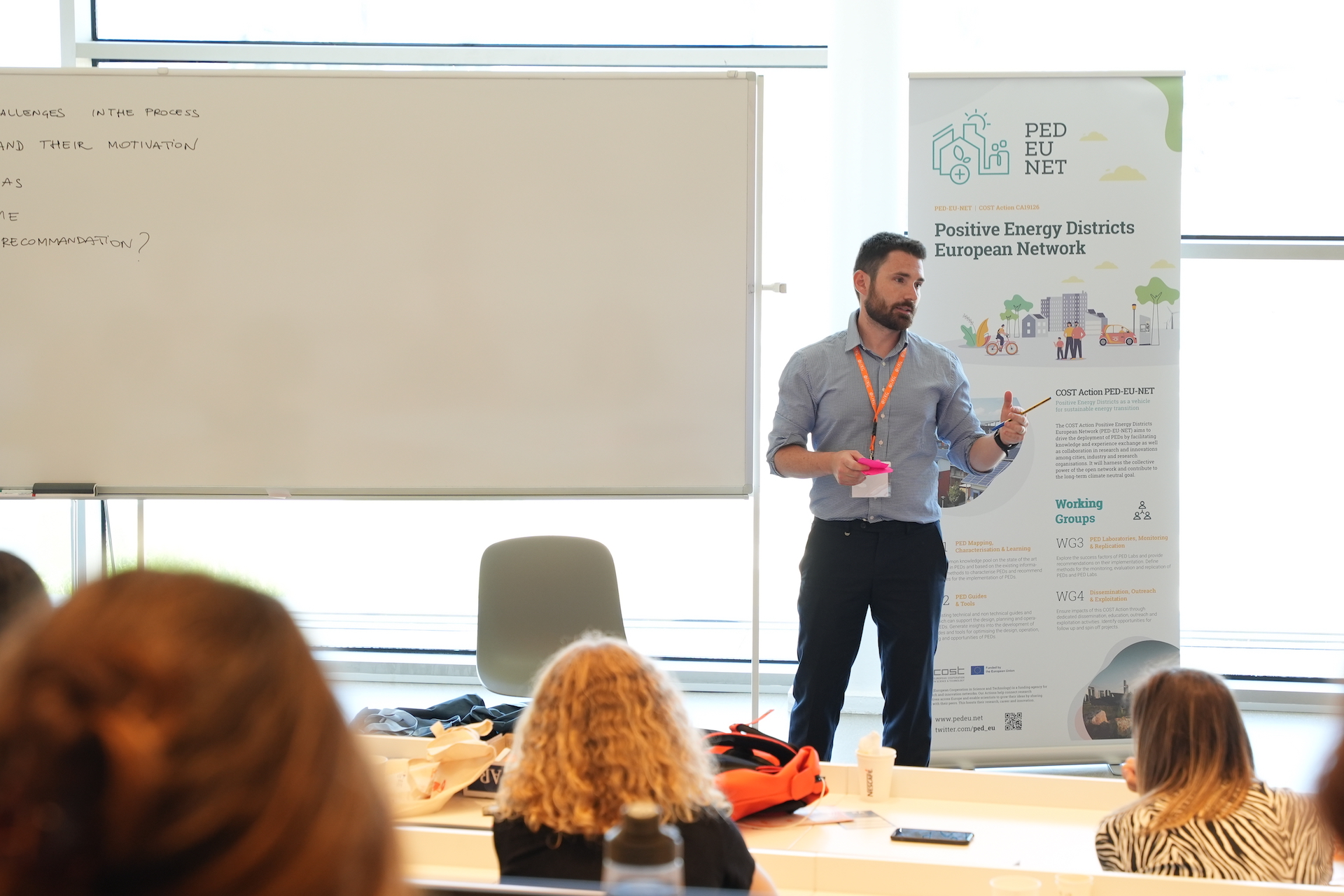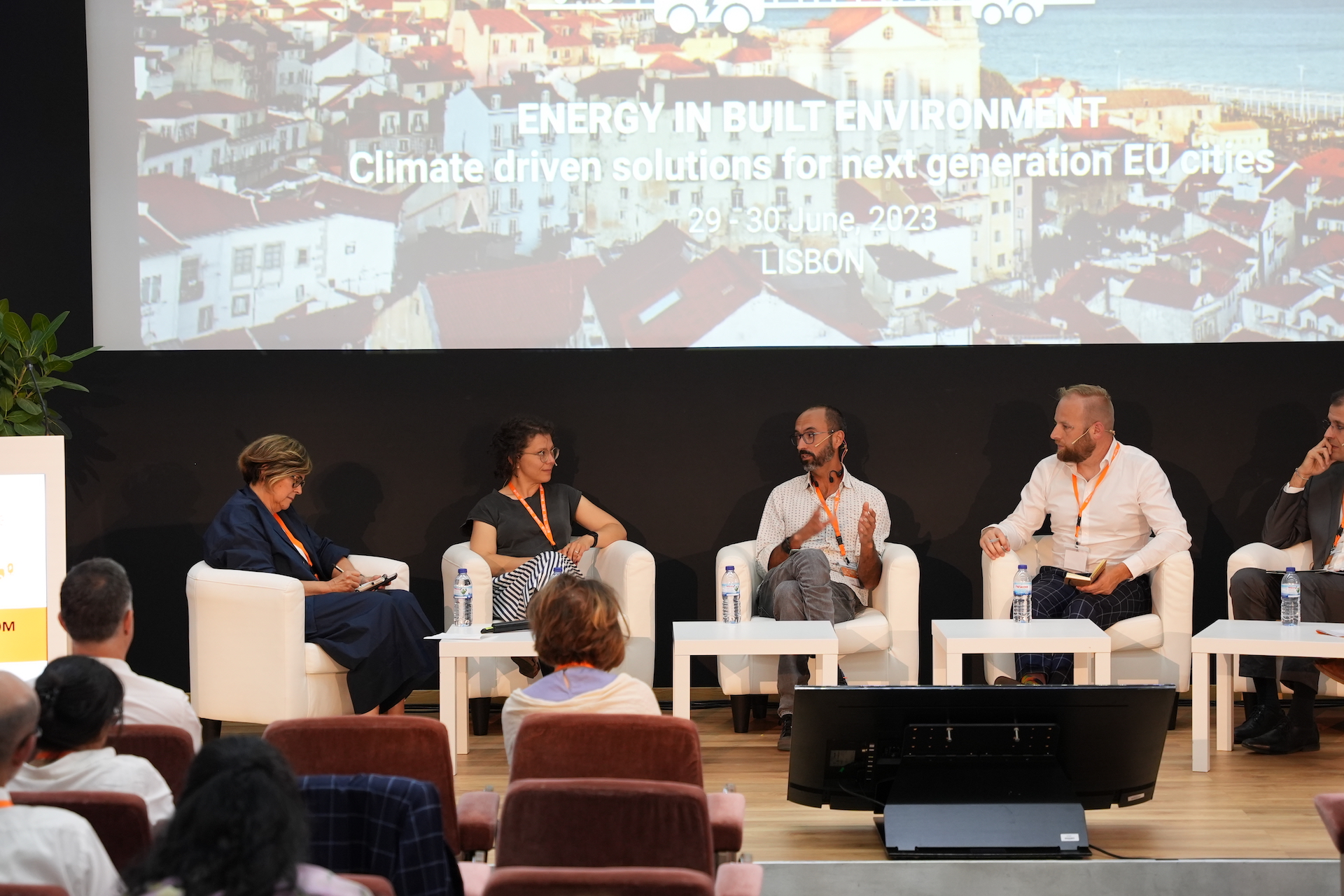Sharing the Experience with Implementing Positive Energy Districts
Takeouts from the Energy in Built Environment: PED-EU-NET Lisbon Conference 2023
It has been over 5 years since the attention of the Smart City community turned towards Positive Energy Districts as the new concept for urban transformation. The conference organized by the PED-EU-NET COST Action network in Lisbon that took place at the end of June 2023 (See https://pedeu.net/energy-in-built-environment-ped-eu-net-lisbon-conference-2023/) could be understood as a sort of a celebration of all the progress that was achieved with PEDs so far. Over 100 participants from European countries shared their insights and continued joint work on PED mapping, process learning, technological tools, business modelling and many other related topics.
SPARCS partners took central stage with CVUT leading the Working group that produced the PED Database and is now departing to launch new deliverable focusing on how the lessons learned can be transferred in-between the projects through story-telling. Nadja Riedel from City of Leipzig brought in the city‘s experience with managing complex projects across the departmental silos. She was one of the main stars of the panel discussion on the second day of the conference along with Maarten de Groote from OpenLAB project, João Dinis from the Municipality of Cascais and Rui Fragoso from the Lisbon Energy Agency (ADENE). SPARCS was further represented by EDP‘s team from Portugal.
The meeting was held jointly with the European Energy Research Alliance Joint Programme Smart Cities that kick-started its new activities within the domains of buildings, districts and cities. CVUT co-chairs with SINTEF the second working group titled „Smart and Liveable Neighbourhoods and Communities“ that wants to be an active exchange forum and to produce high-quality applied research that addresses local contexts and practical realities, therefore helping to bridge the gap between research and practice.
„The key achievement of these Lisbon meetings for me was that we managed to engage much wider group of stakeholders (researchers, business people and cities) who spontaneously joined many common activities on populating the PED Database with new case studies as well as sharing their own stories in a systematic way in order to let other PED practitioners learn from them. PEDs need fresh insights like these,“ commented Michal Kuzmic from CVUT’s SPARCS team.


